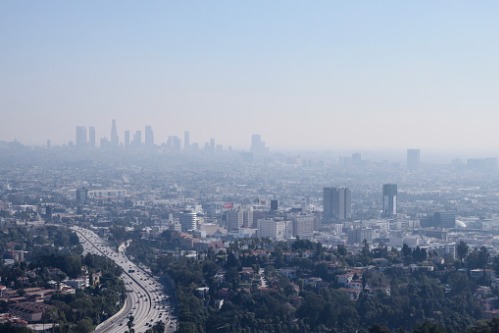
How Air Quality Affects Asthma
If you have asthma or are a parent to a child with asthma, you may have noticed that air quality affects the severity of symptoms. Living in a major city with higher levels of air pollution can lead to more severe asthma symptoms. The United States Environmental Protection Agency (EPA) defines air pollution as “any visible or invisible particle or gas found in the air that is not part of the natural composition of air.”
Types of Air Pollution
While you cannot directly control the air quality where you live, it is important to be mindful of air pollution levels and avoid other unnecessary asthma triggers.
Ozone
Ozone is a gas and one of the most common air pollutants in cities. While you may know ozone as the gas that protects us from the sun’s rays, it also contributes to the smog or haze that we often see lingering in the air on early mornings. Ground-level ozone often stays in the air longer during the summer months as there are fewer winds to push it away. It is especially irritating to the airways and can trigger asthma symptoms if inhaled in high enough concentrations.
Airborne pollution
Besides ozone, small particles in the air can trigger asthma symptoms as well, such as smoke, dust, chemicals and other pollutants. The longer these particles stay in the air, the worse asthma symptoms may become. These particles may be found in higher concentrations in cities with more cars, buildings and industrial expansion.
Monitor air quality
Individuals interested in monitoring their local air quality may visit AirNow.Gov. This online tool provides a comprehensive air quality score, taking pollutants into account. Those who suffer from asthma and allergies may find it helpful to avoid being outside on days with poorer air quality.
Being mindful of other asthma triggers on days with poorer air quality can help lower the risk of an asthma attack or serious asthma symptoms.
For more tips, visit Northeast Allergy, Asthma & Immunology, where we specialize in asthma care for adults and children. Call us today to get started.



